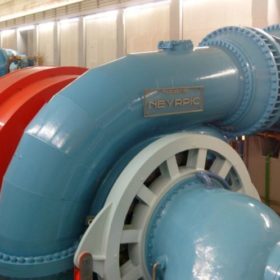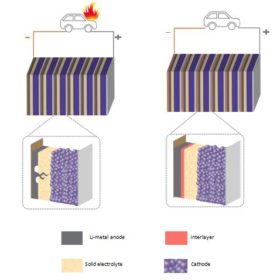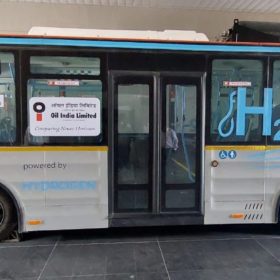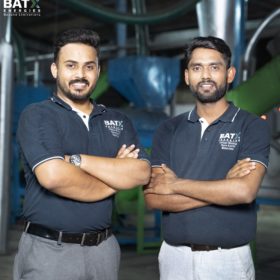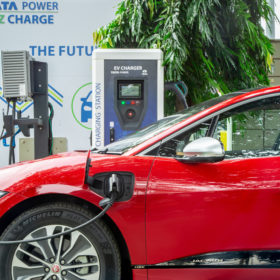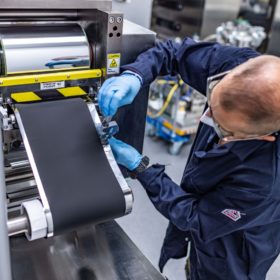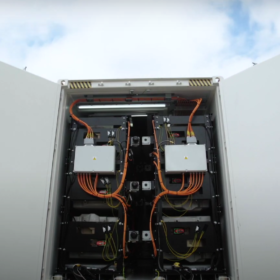Lithium-ion fire fears spark recall of 433,000 solar LED umbrellas in US, Canada
The US Consumer Product Safety Commission and Health Canada have issued a joint recall of patio umbrellas due to fires caused by the overheating of lithium-ion batteries.
New pricing mechanism for pumped-hydro storage in India
A new report recommends a differential pricing mechanism for pumped-hydro energy storage (PHES) projects in pumping (off-peak operation) and generating mode (peak operation). The pricing mechanism for PHES should be based on specific use cases like peak load shaving and the smoothing of renewable energy generation.
Indian researchers find way to stop dendrites in solid-state lithium batteries
Researchers from the Indian Institute of Science, Bangalore, have found that nanoscopic refractory metal layers like tungsten could improve dendrite growth tolerance in electrolytes of solid-state Li-ion batteries. The team collaborated with researchers from Carnegie Mellon University.
Oil India completes beta demo for hydrogen-powered bus
Ohm Cleantech, a startup incubated by Oil India, has developed a 9-meter hydrogen fuel cell bus that can cover 450 km on a single refill. The bus will start appearing on roads in Assam’s Kaziranga Nation Park in the months ahead.
BatX Energies raises $1.6 million to expand battery recycling
Vikrant Singh, co-founder and CTO of BatX Energies, told pv magazine that the company would use the funds to scale up its capacity, with plans to launch material production from end-of-life lithium batteries on a commercial scale. It will also set up recycling units in different geographies to locally produce black mass – a mixture of battery anode and cathode materials – and ship it to its India facility for battery material extraction.
ISA opens global bids for solar cold storage in Africa
The International Solar Alliance (ISA) is overseeing bids from prospective contractors to supply, install and commission solar cold storage capacity in Senegal, Sudan, and Seychelles. Bidding is also open for two 2 MT systems in Djibouti.
Tata Power installs 150 clean energy-powered EV charging stations across Mumbai
The company has installed solar, wind, and hydro-powered electric vehicle charging stations at residential societies, malls, commercial complexes, and petrol pumps in the city.
US startup unveils non-flammable batteries for EVs, storage
Alsym will produce its new batteries – made of readily available materials, without lithium or cobalt – for electric vehicles, stationary storage, and marine applications.
EV battery can reach 98% charge in less than 10 minutes
Enovix has shown that its US-made silicon anode lithium-ion batteries can charge from 0% to 80% in just five minutes.
Hinduja Group invests in UK second-life battery storage specialist
Hinduja Group, an Indian multinational, has invested GBP 15 million (($18.4 million) with four other investors in Connected Energy, a developer of energy storage systems based on second-life electric vehicle batteries. The investment will help Connected Energy to scale up its operations and move into utility-scale project development.

